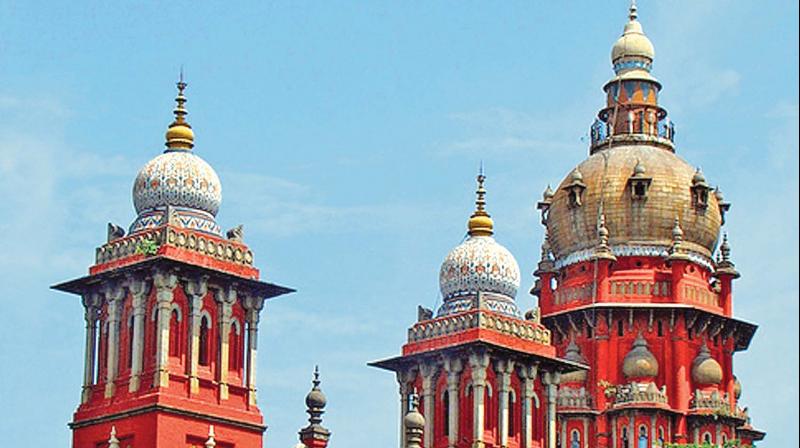Madras high court upholds disqualification of Pondy MLA
The bench said once a member suffered a disqualification, by operation of law.

Chennai: The Madras high court has upheld the order of the Puducherry Legislative Assembly Speaker and the chief secretary of Puducherry government, disqualifying Ashok Anand from being a member of the Puducherry Legislative Assembly from the date of his conviction (October 30, 2018) in a disproportionate assets case.
A division bench comprising Justices R. Subbiah and Krishnan Ramasamy dismissed the petition filed by Ashok Anand, challenging the order of his disqualification from being member of Puducherry Legislative Assembly.
The petitioner contended that he was convicted for having allegedly committed an offence under section 109 of IPC for abetting the co-accused in the criminal case namely his father. There is no express provisions either under the Representation of People Act or the Constitution of India to disqualify a Member of Legislative Assembly for having committed the offence of abetment and what is provided as a disqualification is only the offence punishable under section 13 of the Prevention of Corruption Act. Therefore, the offence of abetment cannot be equated to that of the offence under the PCA warranting his disqualification, he added.
The bench said it cannot be disputed that the Representation of People Act has been framed by our legislatures to regulate certain matters relating to election, disqualification or delimitation of constituencies for proper conduct of either House of the Parliament or the Legislative Assembly, as the case may be. In the course of legislation, it mandates that the members of such Legislative Assembly must be of blameworthy conduct to inspire the confidence of the voters, who have exercised their franchise in favour of such member. When the so called member suffers certain disqualification by any of the sub-clauses contained under Article 191 of the constitution, then it goes without saying that such member had lost the confidence reposed in him by the voters. In such circumstances, whether the member suffered conviction under the IPC or the Prevention of Corruption Act is immaterial, especially when such conviction comes within the fold of Article 191 (1) (3) of the Constitution of India, the bench added.
The bench said once a member suffered a disqualification, by operation of law, he cannot be expected to continue as a Member much to the chagrin of the electors. “Therefore also, we are of the view that the disqualification suffered by the petitioner either under the Indian Penal Code or the Prevention of Corruption Act, cannot in any way put him in the higher pedestal to claim that such conviction under either of the provisions will not attract the disqualification”, the bench added.
The bench said on a reading of the judgment of the trial court coupled with section 8 (1) (m) of the RPA, would only indicate that the conviction imposed on the petitioner can be construed as the one imposed under the Prevention of Corruption Act and consequently, such conviction imposed on the petitioner would attract his disqualification to hold the position as a Member of the Legislative Assembly and he had lost the people’s mandate. “In any event, we do not find any classic distinction between the conviction imposed under the Prevention of Corruption Act or the Indian Penal code that would relieve the petitioner of his disqualification. To top it all, the conviction suffered by the petitioner, even if it is under the Prevention of Corruption Act or the Indian Penal code, will be a disqualification for the petitioner to continue as a Member of the Legislative Assembly”, the bench added.

